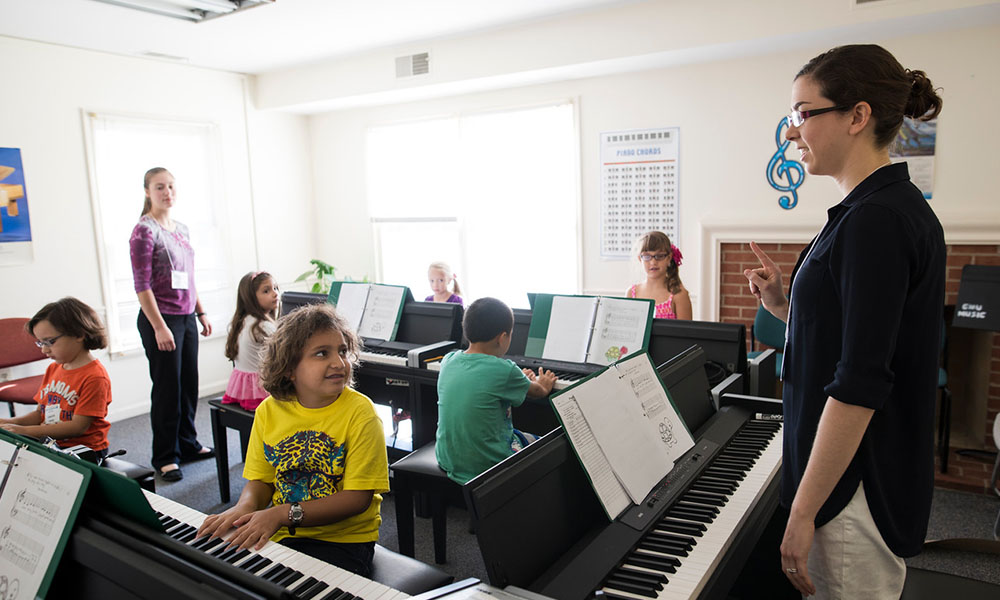Arts and music education offers much more than just the opportunity to develop creative talents. It provides children with valuable skills that enhance their academic success and personal growth. From visual arts to music and theatre, the arts can help nurture essential life skills such as creativity, critical thinking, emotional expression, and teamwork. Whether in a classroom setting or through extracurricular activities, an arts-focused education can transform how children approach learning and life.
Unlocking Creativity Across All Ages
Creativity is the foundation for problem-solving, innovation, and self-expression. In an arts-centered program, students are encouraged to explore their imaginations and express their ideas in new and unique ways. Whether through painting, dancing, or composing a song, arts education helps children build confidence in their ability to think outside the box and tackle challenges creatively. By engaging with different forms of artistic expression, children unlock new ways of approaching the world around them.
Enhancing Verbal and Visual Vocabulary
The arts serve as a powerful tool for building both verbal and visual vocabulary. In music and theatre, children learn how to express emotions and ideas through their voice and movement, improving their ability to communicate effectively. Visual arts encourage children to think about color, shape, and form, helping them interpret and describe their surroundings with greater depth. These skills go beyond art itself and can translate into stronger written and verbal communication across all subjects.
Fostering Essential Career Skills
While the arts are often viewed as an outlet for personal expression, they also provide students with valuable career-building skills. Through collaborative projects in theatre productions, music ensembles, or group art classes, children learn the importance of teamwork, accountability, and adaptability. These experiences teach children how to collaborate, take constructive feedback, and work toward a shared vision—all essential qualities for professional success. The arts also encourage resilience as children learn to persevere through challenges and refine their skills.
Cultivating Emotional Expression and Sensory Awareness
One of the most significant benefits of arts education is the opportunity it provides for emotional expression. Through music, dance, and visual art, children can explore and express their emotions in healthy ways, leading to better emotional awareness and regulation. The sensory nature of the arts also helps children become more attuned to their surroundings and develop a greater appreciation for the world around them. By expressing feelings through art, children gain insight into their emotional well-being, which contributes to overall mental health.
Developing Musical and Technical Skills
Learning music, whether it’s through playing an instrument or singing, is not only a form of creative expression but also an opportunity to develop technical skills. Music education fosters a deep understanding of rhythm, melody, and harmony, while also teaching discipline and focus. Children who engage in music learn how to practice and persevere, developing a work ethic that translates into other areas of life. Additionally, learning an instrument or singing in a group helps build cognitive skills, such as memory, concentration, and attention to detail.
Building Lifelong Appreciation for Music and Culture
Incorporating arts and music into education helps children develop a lasting appreciation for culture and the arts. By studying music, dance, and theatre from various time periods and cultures, students broaden their worldview and become more empathetic and culturally aware. This exposure to the rich diversity of human expression fosters an appreciation for the arts that can last a lifetime. In turn, this creates an environment where children develop a deeper connection to the world around them and understand the importance of creativity in society.
Who Can Benefit from Arts & Music Education?
The benefits of arts and music education are available to students of all ages. Whether a child is naturally inclined toward artistic expression or simply looking for a new outlet for creativity, arts education provides opportunities for every student to flourish. Young children, especially those in early elementary grades, can develop essential cognitive and emotional skills through music and visual arts. Older students can deepen their technical and expressive abilities while gaining crucial social and career skills.
Arts education is especially beneficial for students who may not excel in traditional academic subjects, as it provides them with a platform to shine and build confidence. It can also help children develop resilience, persistence, and problem-solving skills—traits that are invaluable in both school and life.
Ready to Explore the Arts?
If you’re looking for an engaging and enriching way for your child to develop creative and life skills, arts and music education is the perfect avenue. Whether it’s learning to play an instrument, acting in a play, or painting a masterpiece, there’s an art form that can ignite your child’s imagination and foster personal growth. To learn more about how arts and music education can benefit your child, or to explore available programs and classes, don’t hesitate to get in touch. Start your child’s artistic journey today and help them unlock their full potential through creative expression.





